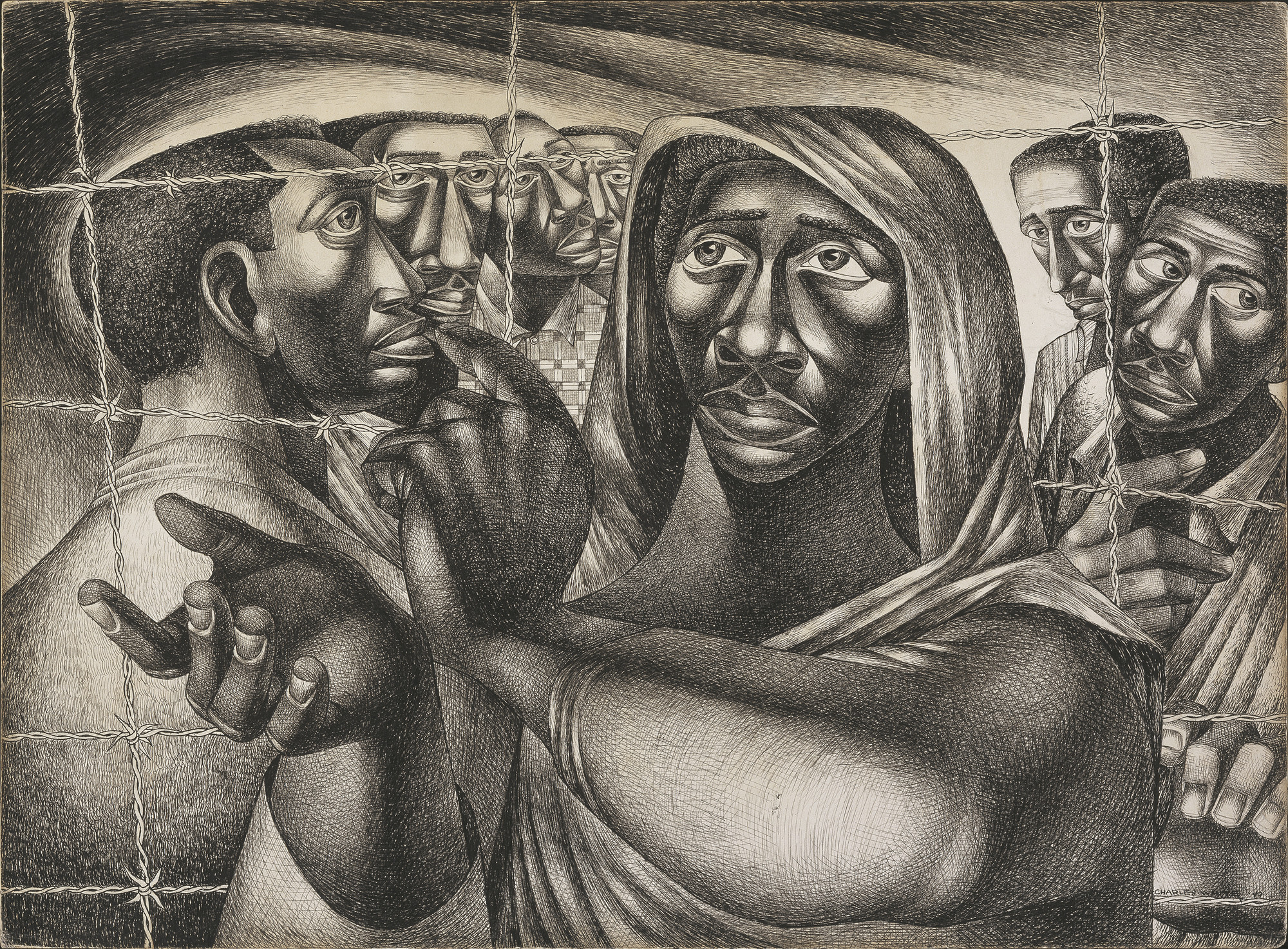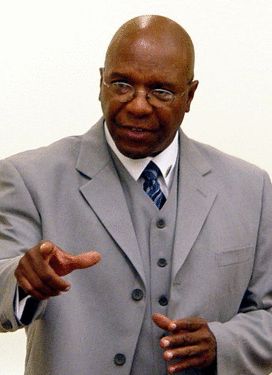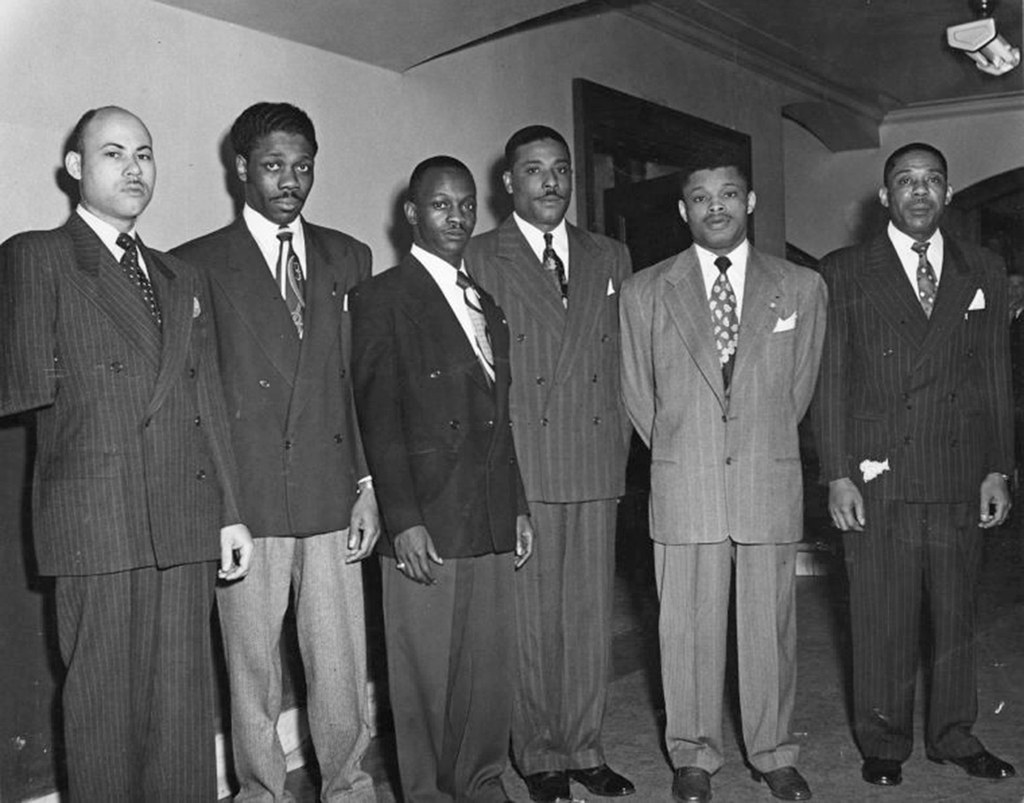New Jersey, No Justice
Courtney Tuck and Jamie Yoos
Ralph Cooper. McKinley Forrest. Collis English. John McKenzie. James Henry Thorpe, Jr. Horace Wilson.
Six names. One unforgettable trial
January 27, 1948, 73-year-old William Horner was found bleeding from the skull in the back of his thrift store. "Six black men", Elizabeth Horner [wife] explained. Six black men had come in to make a purchase, pillaging the entire store moments later, leaving the two severely injured.
Cooper, Forrest, English, McKenzie, Thorpe Jr., and Wilson were soon arrested, charged for manslaughter.
Incommunicado detention. No warrants. Beaten and bruised for confessions. It was Hell on Earth when the accused were held in custody by the Trenton police.
The first trial, held by an all-white jury, originally resulted in these men being sentenced to death by electric chair. Bessie Mitchell, sister of Collis English, refused to let this sentence befall on the victims, for she immediately beseeched the aid of the Civil Rights Congress. The case eventually gathered the attention and participation of many influential figures, such as Thurgood Marshall, Eleanor Roosevelt, and Albert Einstein.
Cases, such as this one, often go unrecognized, receiving an insufficient amount of recognition from the media. "When the event happened, only the local newspapers wrote a one-sided event of what happened, leaving the readers to think that 'Here goes those negros again, our policemen need to be tougher on those people'." said historian Brandon Hardison. "Other cities only copied the same story and buried it somewhere after page one."
Situations like these appeared to be quite common in Trenton, however, not much change has been made, according to Hardison.
"Trenton has had an opportunity to made significant improvements but chose not to do that. Sorry to say. I love my hometown, I graduated in the school system, came back and tried to help but the powers to be didn't want help they wanted the status quo to continue. Sad but it happens in a lot of our urban communities.”
The Trenton Six case was the topic of discussion during its time. Yet, somehow, it seems to have almost slipped away in history. Though this may be, with her work “Jersey Justice: The Story of the Trenton Six”, historian Cathy D. Knepper, brings the case back to reality during the Gaithersburg Book Festival in 2012, shedding light once again on one of the most dishonorable moments that not only the state [New Jersey] has experienced, but our country’s history as a whole.
Knepper had the opportunity to share with the general public her work, discussing how the case came about, the amount of time each trial took, what each male had to endure, as well as her views on it.
While doing her research, Knepper stumbled upon the letter Bessie Mitchell wrote to Eleanor Roosevelt, pleading for Roosevelt to provide some sort of assistance. Knepper even incorporated snippets of Mitchell's letter in her presentation.
To this day, police brutality is still one of many forms of police misconduct, and a resolution for this issue has yet to come into play.
Unfortunately, there are numerous cases similar to the Trenton Six, involving the fall of victims such as Trayvon Martin, Philando Castile, Sandra Bland, and more.
"People think that this could not happen now, but I would refer you to the cases of the Norfolk Four that happened this century in Virginia. So, unfortunately, not much has changed"
—Cathy D Knepper
With the 71st anniversary approaching, let us keep the names of these six men alive. Keep them in remembrance, and as a country, let us come together to stop the power of the ignorant from serving us injustice once more.




Leave a comment
You must be logged in to post a comment.